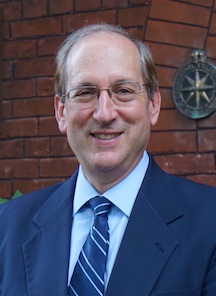The Society recently adopted a new strategic plan, “Mapping the Future of the Phi Beta Kappa Society,” a framework charting the path towards our 250th anniversary in 2026. It focuses on ΦBK’s potential role in and effect upon a changing world. Yet in imagining new possibilities, “Mapping the Future” (pbk.org/strategic-plan) draws inspiration and guidance from our storied past.
When the five founders of ΦBK famously gathered on the night of December 5, 1776, they grounded their effort in the values of the liberal arts and sciences—personal freedom, scientific inquiry, liberty of conscience, and creative endeavor—and embraced the power of those values to address the challenges of their time. The founders’ vision has resonated throughout our history. At last summer’s Triennial gathering of ΦBK leaders, newly-elected ΦBK President Lynn Pasquerella reminded delegates that “an education grounded in the liberal arts and sciences is inextricably linked to our nation’s historic mission of educating for democracy.”
We find another expression of this vision 100 years ago from one of Lynn’s distinguished predecessors, past ΦBK President Edward A. Birge (President of the University of Wisconsin–Madison) in 1919:
The fundamental faith of Phi Beta Kappa is in the inexhaustible value of the accumulated experience of the human race as a guide to wise action in all relations of life. This experience is developed in science, recorded in history, embodied in literature. All permanent social gains flow out of it, are based upon it.
Reflecting on America’s entry into World War I and the resulting national transformation, especially for a generation of young people, Birge elaborated on the idea that the faith of Phi Beta Kappa is vital in a fast-changing world:
But this faith is no mere conservative force, limiting progress and controlling its advance. We believe in our motto; we cognized philosophy as the pilot of life, not concerned to keep the ship in harbor but to guide it safely through dangerous waters. The problem therefore for us today, both as individuals and as a Society, is to make our faith active and effective in the changing world around us.
Birge’s charge in 1919 finds expression in “Mapping the Future” in 2019. Our goals are to advocate for the liberal arts and sciences, strengthen the ΦBK campus experience, and reimagine the lifelong connection of all our members.
Our vision champions liberal education as essential not only for meaningful inner lives, but for productive careers and engaged roles in building and transforming communities. Our special initiative to advance diversity and inclusion seeks to ensure that first-generation and historically underrepresented students and alumni have greater opportunities to participate in the life of ΦBK, on campuses and in their communities.
Frederick M. Lawrence
Secretary and CEO




